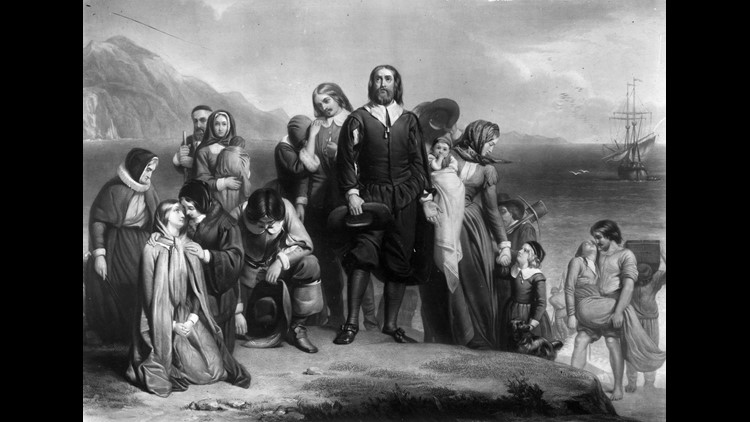When Europeans arrived in the Americas, they caused so much death and disease that it changed the global climate, a new study finds.
European settlers killed 56 million indigenous people over about 100 years in South, Central and North America, causing large swaths of farmland to be abandoned and reforested, researchers at University College London, or UCL, estimate. The increase in trees and vegetation across an area the size of France resulted in a massive decrease in carbon dioxide (CO2) in the atmosphere, according to the study.
Carbon levels changed enough to cool the Earth by 1610, researchers found. Columbus arrived in 1492,
“CO2 and climate had been relatively stable until this point,” said UCL Geography Professor Mark Maslin, one of the study’s co-authors. “So, this is the first major change we see in the Earth’s greenhouse gases.”
Before this study, some scientists had argued the temperature change in the 1600s, called the Little Ice Age, was caused only by natural forces.
But by combining archaeological evidence, historical data and analysis of carbon found in Antarctic ice, the UCL researchers showed how the reforestation — directly caused by the Europeans’ arrival — was a key component of the global chill, they said.
“For once, we’ve been able to balance all the boxes and realize that the only way the Little Ice Age was so intense is … because of the genocide of millions of people,” Maslin told CNN.
The methodology
Researchers analyzed Antarctic ice, which traps atmospheric gas and can reveal how much carbon dioxide was in the atmosphere centuries ago.
“The ice cores showed that there was a larger dip in CO2 (than usual) in 1610, which was caused by the land and not the oceans,” said Alexander Koch, lead author of the study.
A small shift in temperatures — about a 10th of a degree in the 17th century — led to colder winters, frosty summers and failing harvests, Koch said.
The implications
The implications of the study go beyond climate science and also contribute to research in geography and history, Maslin said, noting that deaths of indigenous Americans directly contributed to the success of the European economy.
Natural resources and food shipped from the New World helped Europe’s population to expand. It also allowed people to stop farming for sustenance and begin working in other industries for spare money.
“The really weird thing is, the depopulation of the Americas may have inadvertently allowed the Europeans to dominate the world,” Maslin said. “It also allowed for the Industrial Revolution and for Europeans to continue that domination.”



